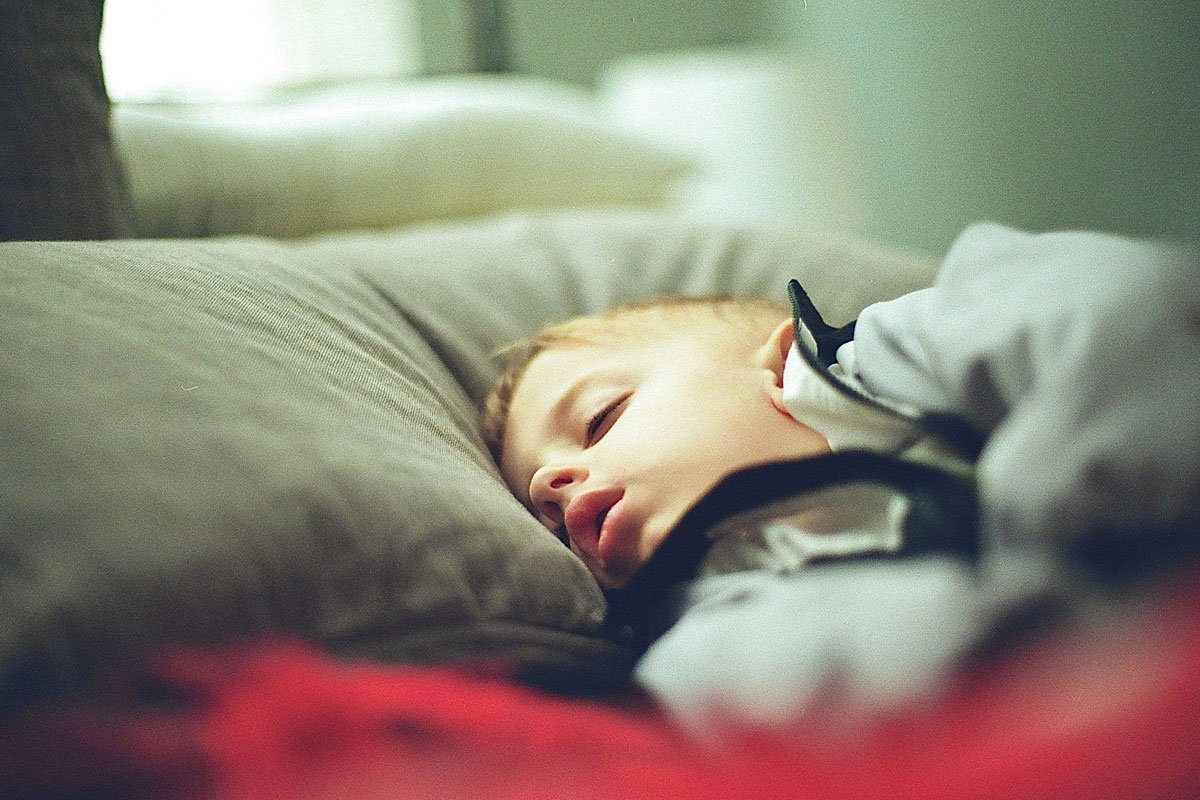Good sleep is essential for the health of our minds and bodies. When we sleep, our immune systems repair our bodies from the day’s activities. Proper rest is also necessary for our mental health. Without seven to nine hours of sleep, we can’t wake up feeling mentally refreshed and ready to take on a new day. As parents, you must get your children into a proper sleeping routine, or they may not get the rest they need. Then, the harmful routine can continue into adulthood. The good news is that there are many ways to improve the quality of your kid’s sleep. Use the information and the tips below to ensure healthy habits today that can help your children thrive tomorrow and improve the quality of your kid’s sleep.
1. Understand the Importance of Sleep
Sleep is a building block of a healthy life, especially for kids. When they sleep, their brains work to retain the information they learned during the day. During non-REM sleep, repair and growth occur, and essential brain development hormones are released. You can prioritize your child’s healthy habits by understanding the sheer importance of proper rest.
Poor sleep during childhood can also affect the health of parents. When a mother is up all night worrying about whether her child is asleep, her sleep quality is often also affected. If a child wakes up every night and bothers mom and dad, it could throw off the circadian rhythms. Continued sleep issues could eventually turn into insomnia. So, if your children are having trouble getting shut-eye, an intervention is essential.
2. Investigate if Your Child Has a Sleep Disorder

The first step is to rule out a potential issue your children cannot control. Some studies say that up to 50% of kids may experience some sort of sleep disorder at some point. These issues can include obstructive sleep apnea, sleepwalking, sleep terrors, restless leg syndrome, and recurring nightmares, among other conditions.
Parents who believe their child may have a sleep disorder should contact a paediatrician. Signs of a disorder could include the fact that your child seems to lie in bed for hours without going to sleep. It could also be that they only sleep for 90 minutes at a time or snore loudly. Don’t hesitate to bring them to the doctor, who can give you methods to help them sleep better.
3. Investigate Mental Health Issues
Next, you must rule out internal factors keeping your kid’s from getting quality sleep. Children suddenly having bedtime problems could suffer from mental health issues. When your kids have a lot on their minds, it is inevitable that they’ll toss and turn and lose sleep. Youngsters who are bullied at school or have trouble in their lives could start to feel anxious and stressed. If not properly assisted, that anxiety could turn into depression.
Signs of depression in children can include:
- Constant crankiness or moodiness
- Social withdrawal
- Crying and vocal outbursts
- Fatigue and low energy
- Complaints of frequent headaches
If you notice some or all of these signs, it may be time to bring your child to a therapist. A professional can help your child with depression, anxiety, and behavioural problems. Therapists can try many different tactics, including cognitive behavioural therapy, which helps kids cope with unhealthy behaviours. You can also have family therapy sessions where you can all have an open conversation and try to seek answers.
4. Create a Nightly Routine
Once you have ruled out disorders and anxiety, you can start working on a healthy routine. Your kids will go to sleep easier if they have a process they go through that gets them in the mood for bed. Part of that routine should be combing their hair, using the bathroom, and practising dental hygiene. That includes brushing, flossing, and using a mouthguard if necessary. Start this routine at the same time every night. Also, ensure that bedtime is the same every evening, even on weekends, so they can keep their circadian rhythm intact.
5. Reduce Screen Time
To help your kids go to sleep, you must limit the behaviours that can keep them awake leading up to their bedtime. An essential first step is to limit the amount of screen time that your kids have during the evening hours. Many teens like to scroll through their phones as they lay in bed, but that is a problem. Phone screens emit blue light, which can trick the brain into thinking it is daytime, so kids stay awake longer. When your kids play video games late into the night, their body releases the hormone cortisol. That puts them in a heightened state of alertness. If they do that soon before bed, it can take a while to come down, and they stay awake.
To eliminate unnecessary screen time, remove televisions from your child’s bedroom. Also, set a deadline each night for when screens must be shut off. Aim for a couple of hours before bedtime.
6. Avoid Food Before Bed

The other main enemy of sleep is food. It is essential to avoid dinner or snacks two hours before bedtime. Even if your child eats healthy meals, they need time to digest their food. When kids eat too close to bedtime, the food digests while they’re lying down, leading to discomfort, indigestion, and acid reflux.
Some parents habitually give their kids a snack or dessert too close to bedtime. In addition to the abovementioned problems, candy, chocolate, and other snacks can include caffeine. Like adults, caffeine will keep your kids up as they lie in bed. Even beverages that seem harmless, like chocolate milk and hot cocoa, can contain enough caffeine to disrupt your child’s sleep.
7. Help Your Kids Relax

Many parents think that when kids run around at night, they will get tired and sleep easier. However, being riled up can keep them awake. Instead, have your kids engage in physical activity throughout the day. At night, focus on calming activities like reading books and completing puzzles. Then, they will be in the proper mood to start their bedtime routine.
At first glance, this list may appear overwhelming, but it all comes down to a routine. Develop a system that avoids negative behaviours that can keep your kids up at night. This proper guidance and routine will improve the quality of your kid’s sleep, and they will fall asleep and continue these positive behaviours as they grow


